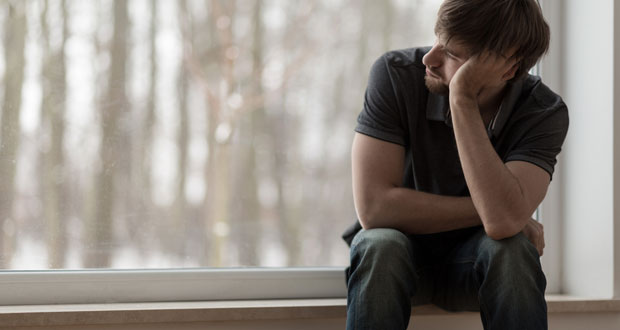It’s a new year! We have a new health minister with a personal understanding of mental illness and Australia has been ranked number two in the region for its mental health efforts. However, there’s still a lot to do to improve the lives of 690,000 Australians living with complex mental illness when their life expectancy is up to 25 years less than the general population.
Stigma attached to mental illness is one of our biggest challenges but there are reasons to retain optimism and believe this is something that we have the power to change. Nurses are pivotal to this.
I was so pleased to be on the selection panel that chose Mental Health Nurses CEO Kim Ryan as the inaugural winner of the Australian Mental Health Prize. I also know exactly how important nurses are, especially mental health nurses, from my own family experience of mental illness.
The region’s experience is captured in the Mental Health and Integration Report by the Economist Intelligence Unit (EIU). It ranked Australia number 2 among 15 countries in Asia Pacific but, more importantly, it provided insights into the challenges that exist for us as a country and a region. The pervasiveness of stigma, especially with complex conditions such as schizophrenia or bipolar disorder, is one of these.
Australia’s stigma reduction efforts were recognised in the report and this continues to be a focus for SANE. Our initiatives such as StigmaWatch are designed to tackle stigma in the media. Most recently, we’ve responded to the many complaints relating to the movie Split, which features a man living with dissociative identity disorder. Once again, cinema has reinforced the notion we need to fear people living with complex mental illness.
Inaccurate reporting and portrayals contribute to the stigma of mental illness, making it more difficult for people to feel like life is worth living. The risk of suicide for a person with a mental illness is 10-40 times higher than the general population. Stigma can stop people who need treatment and support asking for help.
In Australia, the treatment gap has been declining markedly but remains over 50 per cent.
The EIU Report reinforced that people being treated remains low across the region and that self-stigma delays seeking treatment. This is particularly a challenge for people living in regional and rural Australia.
Access to health professionals and health services remain limited. The number of psychiatrists per capita outside cities is 33 per cent of that in major urban areas, and for psychologists it’s 54 per cent.
Per capita mental health outlay by Medicare in the most remote areas is just 11 per cent of that in major cities even though the prevalence of mental illness is the same. Self-harm data points to the impact of these differences with suicide rates higher in rural areas in Australia.
An increased focus on digital technology is one of the solutions. It is already enabling us to deliver some of the support services and education required.
SANE’s online forums have been viewed by more than 220,000 people and generated more than 4,500 discussions since launching in 2014.6 Smartphone access is key to those in rural areas where not everyone has internet access at home.
The culture of self-reliance often found in rural areas can also be an obstacle to seeking help and for a person with a mental illness, the perceived risk of being ‘found out’ when seeking help is high if ‘everyone knows everyone’.
While stigma can often be more pronounced in rural areas than urban areas, it can be almost brutal in some Asian cultures.
The EIU report’s key finding was that effective support is ultimately dependent on cultural acceptance, making this a major consideration for our multicultural nation.
From notions of black magic and the evil eye linked to mental illness in Pakistan to a recent survey that found half of Singaporeans believe that mental illness is a sign of weakness, stigma is deeply entrenched in many cultures who have made Australia home.
Nurses in particular are often the people communicating with the individual’s family, gaining a personal insight into the role of culture and attitudes towards mental health.
Stigma remains one of the biggest obstacles we face because of its complexity and pervasiveness, but as more of us work to educate people about mental illness, call it out when we see it and provide support for those who need it, a life without stigma remains a hopeful reality.
Jack Heath is CEO of SANE.
Do you have an idea for a story?Email [email protected]
 Aged Care Insite Australia's number one aged care news source
Aged Care Insite Australia's number one aged care news source


